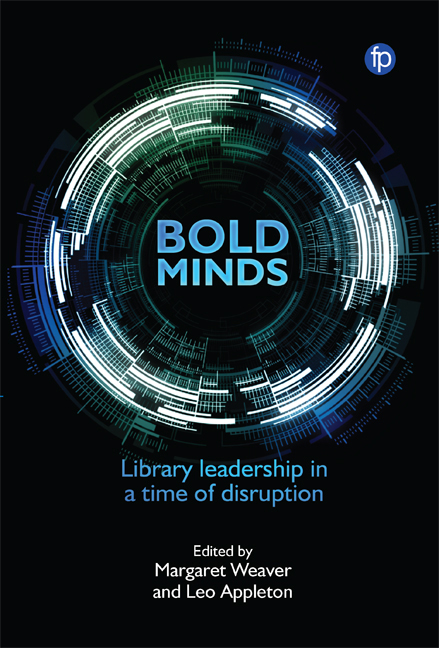Book contents
- Frontmatter
- Contents
- Foreword
- Contributors
- Preface
- Introduction
- Section 1 Views From the Corridors of Power: The Political and Global Perspective
- Section 2 The Re-Birth of Libraries – New Business Models and Re-Generation of Services
- Section 3 Who Really Matters? User Communities and Alignment
- Section 4 The Future Library Professional – Horizons and Challenges
- Index
Preface
Published online by Cambridge University Press: 15 December 2020
- Frontmatter
- Contents
- Foreword
- Contributors
- Preface
- Introduction
- Section 1 Views From the Corridors of Power: The Political and Global Perspective
- Section 2 The Re-Birth of Libraries – New Business Models and Re-Generation of Services
- Section 3 Who Really Matters? User Communities and Alignment
- Section 4 The Future Library Professional – Horizons and Challenges
- Index
Summary
The ideas for this book have been driven by the global changes that have taken place within the information landscape over recent years. Economic, cultural and digital developments have resulted in a volatility in this landscape and consequently libraries, in all sectors, occupy new spaces and have new roles and purposes in the 21st century.
Across the many diverse information sectors, opinions differ about the relevance and importance of libraries as we journey boldly through the century. Leaders who have influenced current library provision and those who are framing the future offer their views on the questions at the heart of the future of our library services – are librarians and libraries relevant in the 21st century? This is indeed a fundamental question and one that is underpinned by conceptions of leadership, personal efficacy and mindset, organisational context, timeliness and strategic application and outcome.
Originally conceived as a series of provocations, the contributors argue collectively, although each in very different ways, that a new breed of library leader is emerging and will increasingly be required in the future if libraries are to survive and take up their central position in an equal, educated and thriving democratic and developmental society. Indeed, they argue more than this, that bold and radical thinking expressed by visionary leadership and disruptive positioning inside and outside the organisation is the way that librarians will, and are, securing their future relevance.
Two years after the concept for the book had initially been pitched and discussed, the series of chapters now presented are written by eminent professionals from their respective fields, from all types of libraries, and set out a clear mandate for change. Through their reflections and their experiences as leaders at different levels in a diversity of sectors, they offer a route map for achieving what might be currently seen as the impossible dream – for libraries to lead re-generation and knowledge creation rather than merely be subjected to it. The Introduction outlines the core themes and sections of the book to present a powerful portrayal of opportunities, challenges and change for current and future library leaders.
- Type
- Chapter
- Information
- Bold MindsLibrary Leadership in a Time of Disruption, pp. xix - xxPublisher: FacetPrint publication year: 2020



